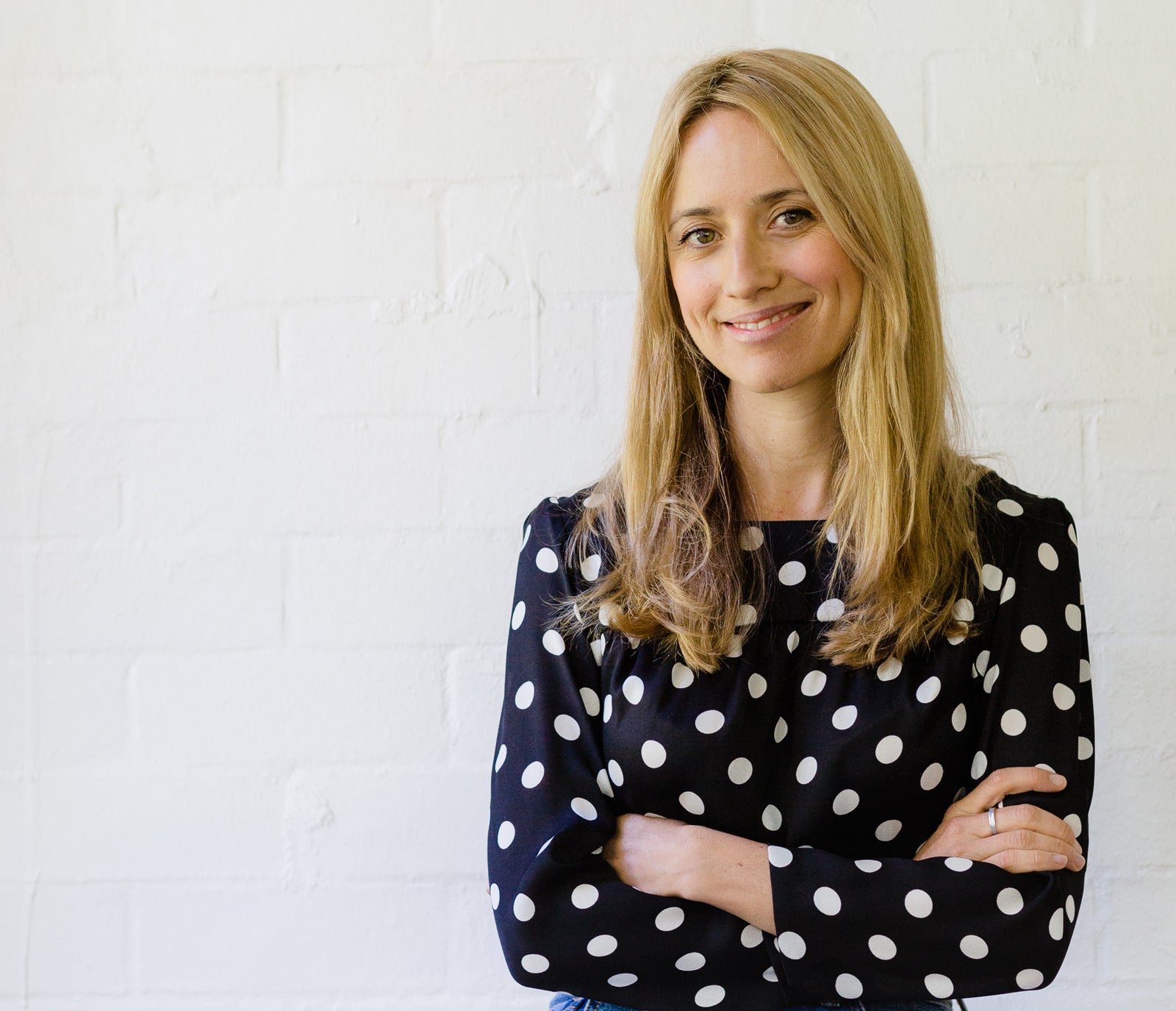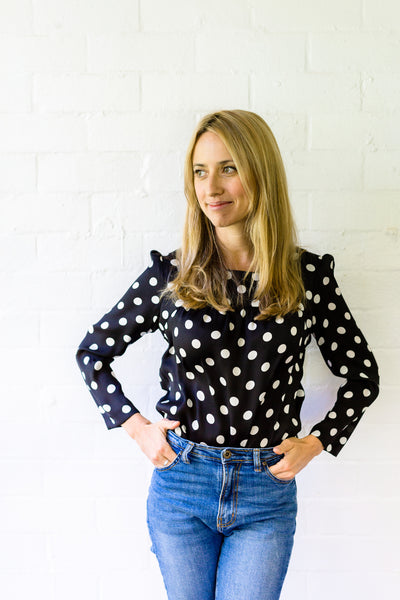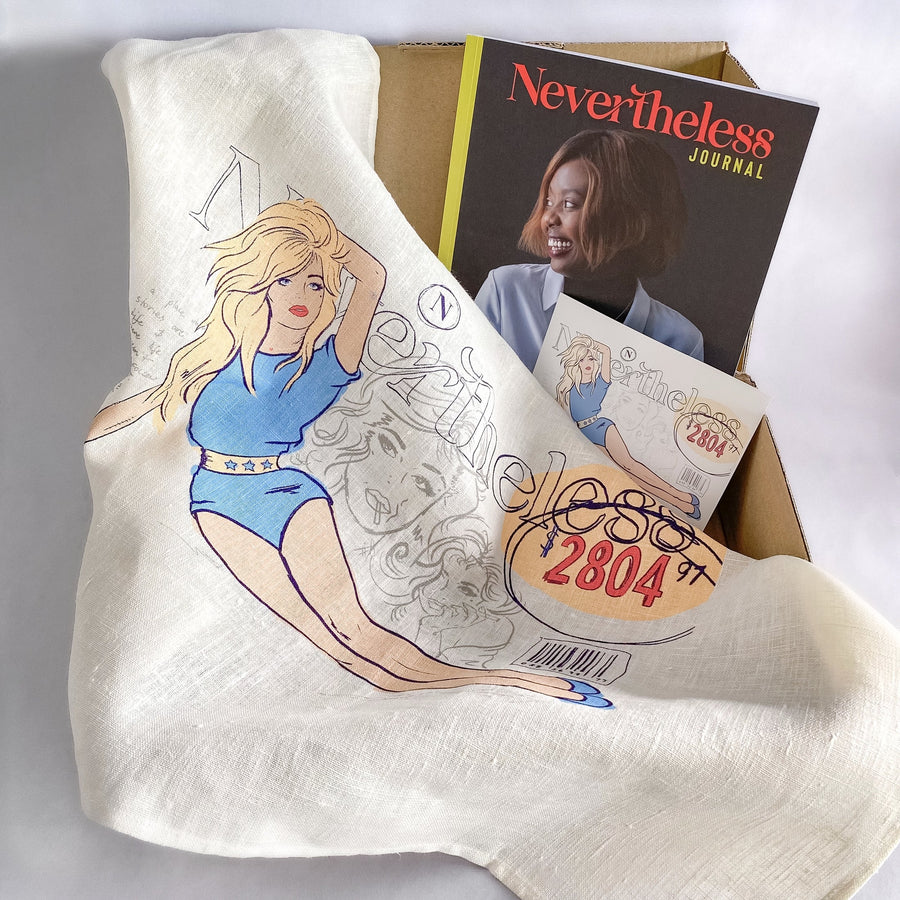Erica Bartle of Outland Denim talks ethical fashion, sustainability and women’s mental load

By Prudence Clark
A pair of jeans is undoubtedly a fundamental component of most of our wardrobes. In 2020, the market value for denim fabric was a staggering 21.8 billion US dollars and believe it or not, this is expected to increase to over 26 billion US dollars by 2026. But how many of us actually stop and consider where our jeans come from and who makes them?
Akin to so many components of the fashion industry, denim too is a mostly wasteful, hazardous, environmentally degrading and human- exploiting industry, which is why Australian company Outland Denim was created.
Founded by James Bartle in 2011 and initially operating out of their HQ on Tamborine Mountain, Outland Denim is at the forefront of sustainability and global citizenship in the fashion industry. The origins of the company, which came about following a trip to South-East Asia, as well as the goals and ethos of this inspiring and empowering business, were all divulged whilst chatting with the incredible, Erica, James’ wife and business partner.
“My husband James and I were at a music festival when we ran into a group from an NGO working in the anti-trafficking space. They gave a pretty impactful presentation and we wanted to know more, so we decided James would go on a field trip with the NGO to Southeast Asia,” Erica said.
“On that trip James encountered a little girl for sale on the streets of Thailand and that encounter changed him forever. Once he returned to Australia, he was driven to do something about the situation that drives people to these circumstances, namely poverty, unsafe migration and lack of opportunity.
“So, Outland Denim began as a way to partner with NGOs and give employment to the young women, who had been through their restoration programs after experiencing exploitation,” she explained.
Starting out as an avenue for victims of sexual exploitation to engage in safe, dignified employment as they rebuilt their lives, Outland Denim have since widened their doors to accept employees from varying backgrounds of vulnerability and exploitation.
Supporting their staff by using the four pillars of training, opportunity, living wages and education, Outland Denim have provided a sustainable career path to more than 750 seamstresses, providing lasting social change, both in the lives of their staff and their families and communities.
“A small percentage of our staff come from backgrounds of human trafficking, but today the lion’s share come from factory situations that were exploitative, or borderline exploitative, with terrible conditions and pay. These sort of conditions make people incredibly vulnerable,” Erica said.
“That’s the status quo in this industry - people don’t see it, as most fashion production is outsourced to developing or emerging countries, so part of our driving force is to rectify the situation by being a bit of a shining light in a dark place. We want to set the pace and standard for an industry that values the people it engages in its work,” she said.
Aside from greater global exposure and raising awareness of modern slavery and human exploitation, Outland Denim is also passionate about the environment.
“We are big on environmental sustainability and take this aspect of our business very seriously. We are a ‘B Corporation’, which ties us to a high benchmark in terms of our operations, as well as being signatory to the UN Global Compact,” Erica said.

“However, on a personal level, I’m a big believer in using what we have and what we’ve learnt, for the betterment of community and the world, so a goal of mine is to continue to engage, learn, understand and then take that and use it to drive positive change in any way I can, be it through the business, or on a more community-oriented level,” she said.
Rampant greenwashing and a competitive consumer culture does make the attainment of ethical fashion challenging, however, according to Erica, a little research goes a long way in the fashion industry.
“Anything that isn’t ethical fashion is likely exploitative in some way and you can generally gauge this through a company’s website. If there is no mention of sustainable or ethical practices, it’s unlikely the company or brand prioritises these issues in its operations,” Erica said.
“I think Australians in general want to do the right thing, which we’ve seen through the overwhelming support for more environmentally friendly and sustainable products and systems, our support of the charitable sector, and now the move to backing renewable energy, we just need to take the time to put in the effort,” she said.
Previously an editor for Girlfriend magazine, Erica used this platform to start her own blog around media, giving her a voice in the industry to speak about the issues and pressures women face in society. Now a mother of three, she spends most of her time supporting her husband’s endeavours with Outland Denim and fulfilling her other passions, namely research and motherhood.
“I love research and communicating what I find to make inroads - I devour reports and books and find myself scribbling notes all over the place. It’s messy work though,” she laughed.
“Outside of that, my kids are a delight and amaze me as they grow into their own little selves - my eldest is so independent now -- she’s a born leader. So my passion is also to see that my children get the best start in life and are able to use their own voices and abilities to create change, or make the world a better place, simply by being dedicated to whatever they choose to put their hands, hearts and minds to,” she said.
Chatting about the pressures women place on themselves in today’s modern society, Erica spoke of the mental load we endlessly carry, whilst also trying to balance a fulfilling work and family life.
“Since having children, my kids have 100% been my priority. I had to establish myself as a mother and as someone running a household with three little individuals and a husband. That’s quite a bit to manage on the best of days, and I think it’s perfectly acceptable to not have to hustle for more,” Erica said.
“In saying that, I also think I would go mad if my professional work didn’t bring me some satisfaction in life. So often there is a very sterile conversation about career versus motherhood, paid versus unpaid work.
“It’s a conversation that doesn’t take into account all the intricate nuances of the emotional, physical and spiritual load women carry in the home, as well as the necessity of accepting that as a woman, you’re allowed to be utterly human, too.
“However, I think there is power in acknowledging where we are at in life and that certain seasons are harder than others, particularly in a world where we tend to glorify those who seem to have their shit together. There is power in the struggle, in the ‘real’. The trick is not giving up,” she said.
Enjoy Erica's story over a good cuppa tea with a copy of Nevertheless Journal Two. Available now!


